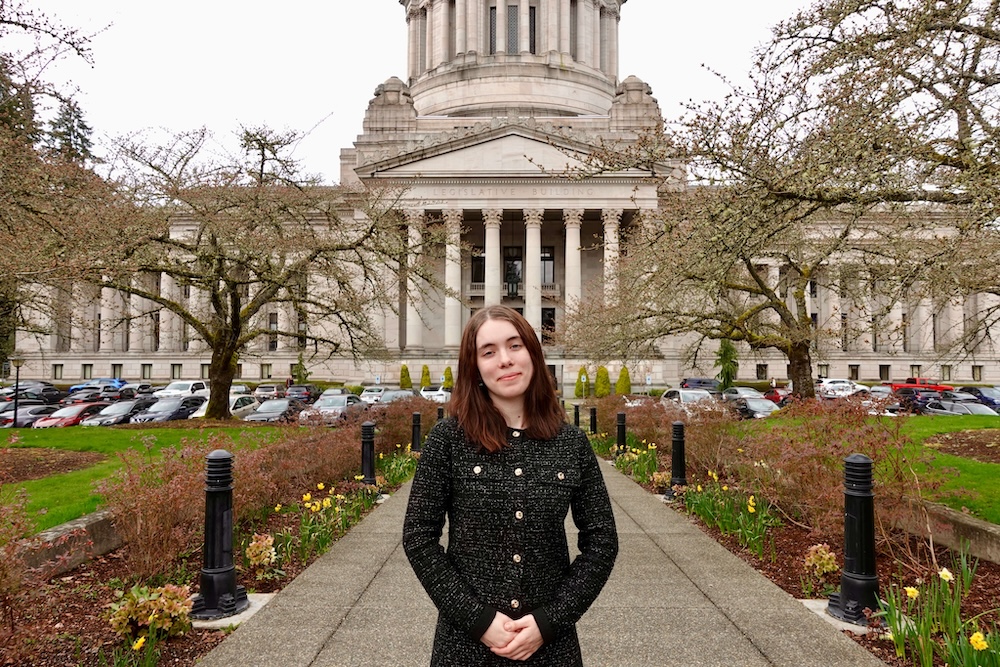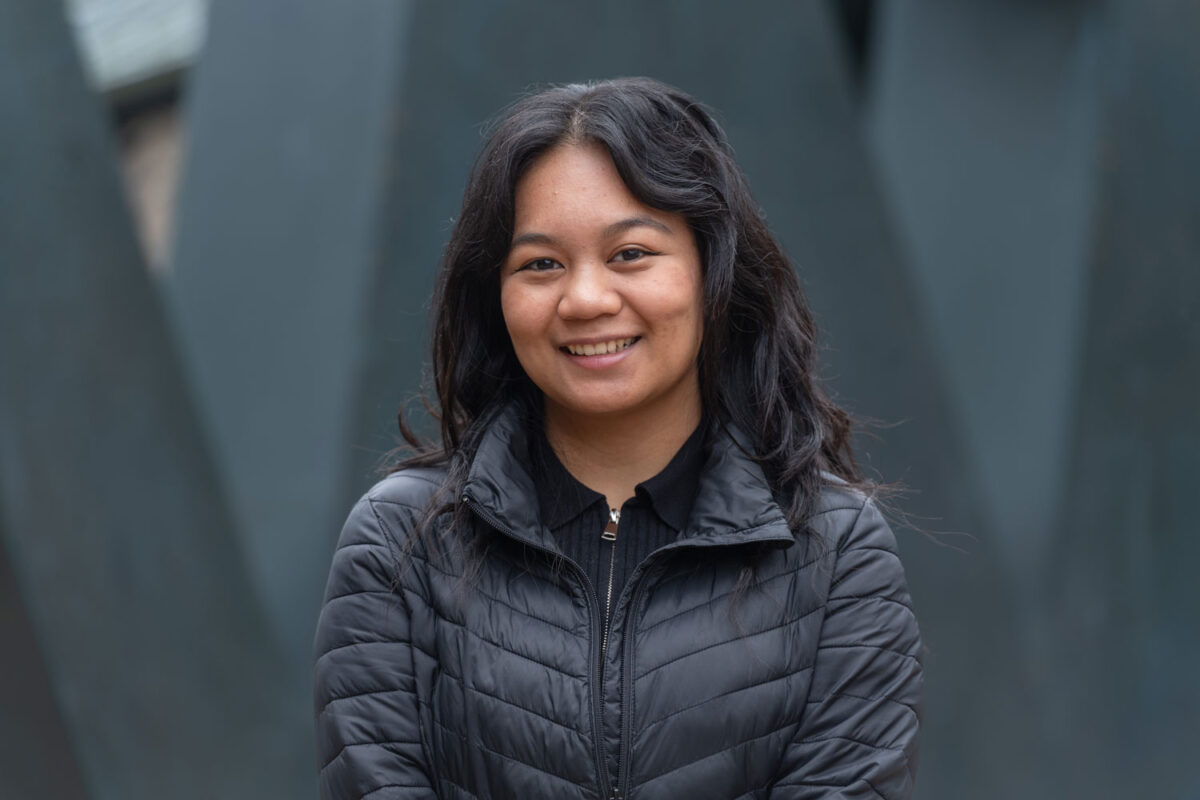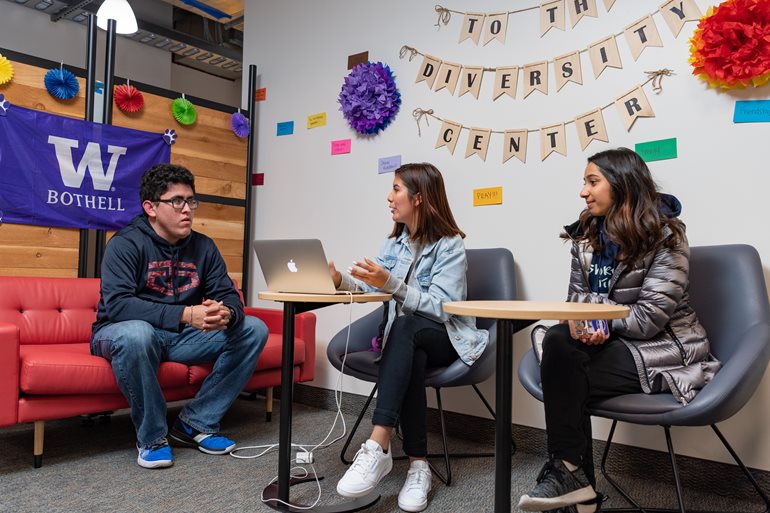
By Sean Park
On May 1, 2017, the much-anticipated Student Diversity Center (DC) opened its doors at the University of Washington Bothell.
Long a priority in the UW Bothell Diversity Action Plan, the center became a reality after students voiced concerns about not having a cross-cultural space on campus where they could find others like themselves and build community.
“UW Bothell has always had a large diverse group of students,” said Miguel Macias, the center’s first and current director. “Whether they’re students of color, first generation, eligible for Pell grants or from different regions of the world, they all needed a familiar space to create a community.
“When it came down to it, students just wanted a place to breathe, to connect and to simply just be,” he said. “They wanted an additional resource hub, and that’s exactly what they created for themselves.”
An open space
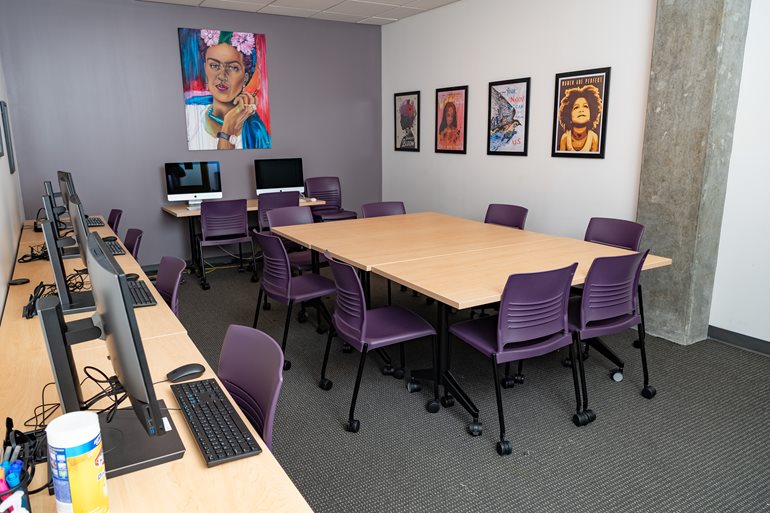
The Student Diversity Center has become a second home to many students. The staff and students who together run the center prioritize building an inclusive and empowering environment in the center.
Anyone can use the available rooms to collaborate on school or club projects. They can rent out office or technology equipment. They also can find information about events and programs around campus.
Lastly, and most importantly, the center provides an open space for students to build relationships.
“It’s a place I know I can find somebody to talk to or ask questions if I’m looking for help,” said Nour Muhalhal, a senior in Community Psychology and a DC staff member.
“When I started at UW Bothell, I wasn’t taking school seriously and wasn’t sure if I was going to graduate,” she said. “Fortunately, after I got hired by the diversity center, I started to realize my potential and that I wasn’t taking advantage of my opportunities here.
“This job pushed me in so many ways, which has felt really good,” Muhalhal said. “It has taught me how to be a leader in my community and understand how to connect with people. It has taught me on-the-job skills, including outreach and marketing that have helped me to discover my passion in graphic design.”
After more than two years as a student assistant, Muhalhal will start a new role as the marketing intern for the DC this fall.
To meet growing demand, the diversity center has upgraded its facilities and is adding staff members.
More student engagement
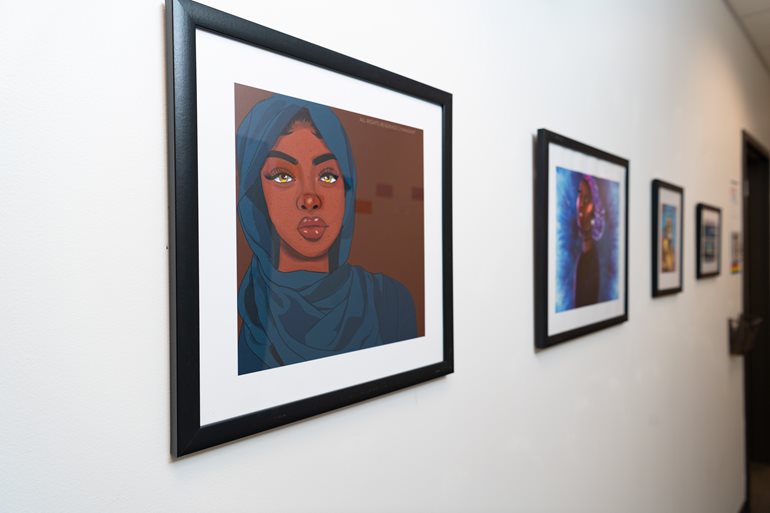
More than 250 students completed a survey last year asking what kinds of improvements could be made, including artwork they wish to see.
“Space is political,” Macias said. “We want to make sure that when a student walks in the diversity center, they can immediately say ‘That is for me, I feel safe here, this place acknowledges my history, my identity, my struggle and my joy.’
“We believe that visual art along the hallways will help represent different cultures that students feel reflected in,” he said.
The new artwork plus additional furniture were funded by the Student Activities Fee. Laptops and TVs were funded by the Student Technology Fee.
UW Bothell has also funded several new positions for the center to facilitate more community events and help bring students together.
Ian Zamora is the new program manager hired this summer. He brings experience working with cross-cultural centers, including his previous role as the program coordinator for University of California, Davis.
“Our goal this year,” said Zamora, “is to continue the legacy of love and care that DC has shown over the past few years and create a lasting infrastructure and vision that will guide this department to thrive in the future.”
The center has also hired three intercultural coordinators, Macias reported.
“We’ve noticed that a lot of international students don’t feel as connected to the diversity center, so we want to make sure we close this gap,” he said. “Through advocacy work, the intercultural coordinators are going to be one of the primary bridges to ensure that international students feel comfortable using our space.”
In addition, the center’s student assistant jobs have been enhanced, and the students are now peer navigators. They will assist with programming and serve as peer-to-peer mentors. Many first-year students, for example, come into the center to ask about what majors they should choose. In a one-to-one setting, the peer navigators can share their own journeys and address the new students’ questions and concerns.
“Nobody knows the students’ reality better than another student who is experiencing the same struggles and joys,” said Macias. “We need to use these connections to help build a stronger community and give our assistants an opportunity to feel more empowered to make social transformations.”
The vision ahead
The mission of the Student Diversity Center, said Macias, is to be open and accessible to all students, no matter their background.
“This space is for everyone who wants to contribute and connect with UW Bothell in a different way,” he said.
Starting this year, Macias and his team of staff and students will focus more on expanding the ways they meet student needs.
“We are here to be of service to our students — to support, guide, mentor and provide opportunity for them,” said Macias. “Our responsibility is to bring to life the vision that our students have for this space.
“In any decision we make, we will do it based on our mission statement that clearly articulates ‘by students and for students.’”

